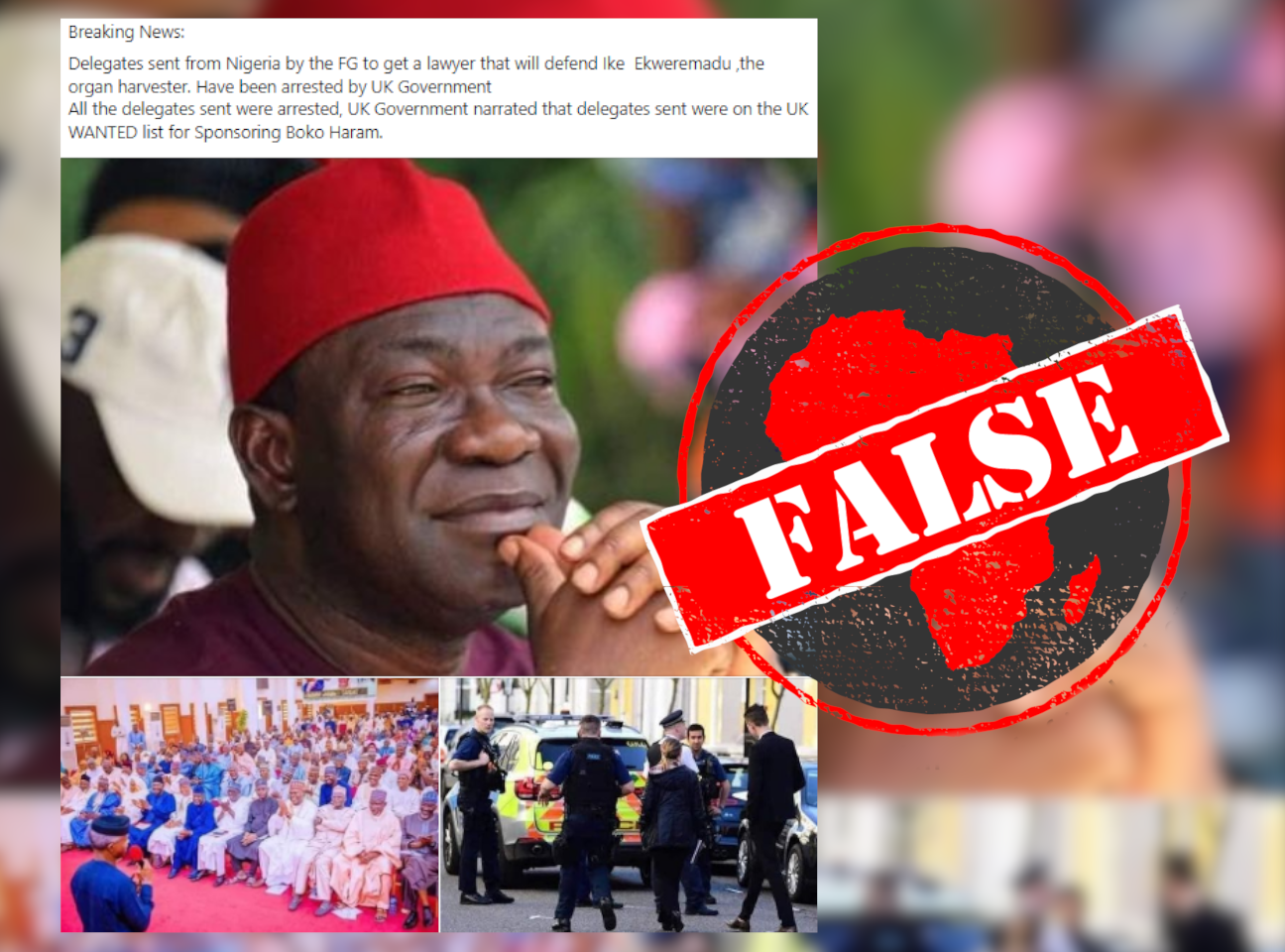In late June 2022, Nigerian opposition senator Ike Ekweremadu and his wife Beatrice Nwanneka Ekweremadu were arrested in the British capital of London and charged with plotting to traffic a teenage boy to the country to harvest his organs.
At their hearing, the court was told the 15-year-old boy was homeless. Police said he was safe.
Ekweremadu is a senator for Enugu state in Nigeria’s South-East geopolitical zone, and a former deputy senate president.
On 29 June, senate president Ahmed Lawan announced that the senate would be sending a delegation to the UK to visit the couple.
A few days later, a rumour that British authorities had arrested the delegation started circulating on Facebook.
“Breaking News: Delegates sent from Nigeria by the FG [federal government] to get a lawyer that will defend Ike Ekweremadu, the organ harvester have been arrested by UK government,” a typical version reads.
“All the delegates sent were arrested, UK Government narrated that delegates sent were on the UK WANTED list for Sponsoring Boko Haram.”
More instances of the claim can be seen here, here, here and here.
Boko Haram is an Islamist insurgency group that has committed numerous terror attacks in Nigeria for more than a decade, mainly in the north.
But were the senators sent to visit the Ekweremadus arrested because they appeared on a UK wanted list for “sponsoring Boko Haram”?

Zero evidence
Google News searches for “Ekweremadu delegation” and similar terms, limited to the past month, returned no reports of any arrest. But the searches did return fact-checks of the rumour by Nigerian news sites, rating it as false.
A search of the news section on Nigeria’s National Assembly website found no reports that the senate delegates had been arrested. Nothing came up on the Nigerian High Commission to the UK website either.
There is no evidence for the rumour.
Republish our content for free
For publishers: what to do if your post is rated false
A fact-checker has rated your Facebook or Instagram post as “false”, “altered”, “partly false” or “missing context”. This could have serious consequences. What do you do?
Click on our guide for the steps you should follow.
Publishers guideAfrica Check teams up with Facebook
Africa Check is a partner in Meta's third-party fact-checking programme to help stop the spread of false information on social media.
The content we rate as “false” will be downgraded on Facebook and Instagram. This means fewer people will see it.
You can also help identify false information on Facebook. This guide explains how.


Add new comment